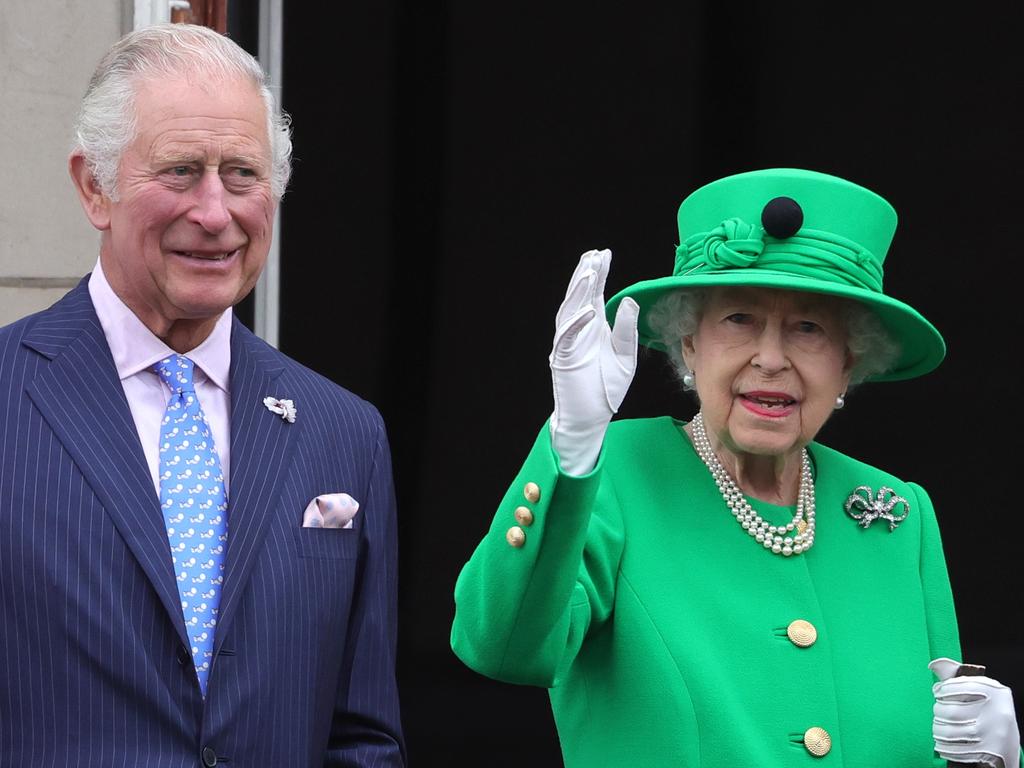


The royal couple, King Charles III and Queen Camilla, visited Sydney and received a warm welcome from hundreds of fans as they attended a church service. However, a small group of protesters also made their presence known by voicing their opposition to the monarchy. While some praised the royals for their visit, others were vocal about their disapproval, highlighting the ongoing debate over the role of the monarchy. Despite the mixed reactions, the royal visit was a significant event for both the British monarchy and the people of Australia.
Royal Visit to Sydney: Warm Welcome and Protests
King Charles III and Queen Camilla's recent visit to Sydney, Australia, was met with a mix of warm welcomes and protests. The royal couple attended a church service, where they were greeted by hundreds of fans, but a small group of demonstrators voiced their opposition to the monarchy.
Background
The British monarchy has a long-standing relationship with Australia, which was once a British colony. The country remains a member of the Commonwealth of Nations, which includes former colonies and realms of the United Kingdom.
Current Visit
The royal couple's visit to Sydney was part of a wider tour of Australia. It marked the first time King Charles III had visited the country since becoming monarch in September 2022.
Reactions
While many Australians welcomed the royal visit, some questioned the continued relevance of the monarchy in a modern, independent nation. Protesters displayed signs calling for the abolition of the monarchy and the establishment of an Australian republic.
Significance
The royal visit was a significant event for both the British monarchy and the people of Australia. It provided an opportunity for the royals to connect with their supporters and for Australians to reflect on their relationship with the monarchy.
Top 5 FAQs
1. Why did protesters oppose the monarchy?
Protesters argued that the monarchy is an anachronistic institution that has no place in a modern, democratic society. They also expressed concerns about the monarchy's cost and its lack of accountability.
2. What was the reaction of the Australian government?
The Australian government welcomed the royal visit and expressed support for the monarchy. However, the government also acknowledged the right of protesters to express their views.
3. What is the future of the monarchy in Australia?
The future of the monarchy in Australia is uncertain. There is a growing Republican movement in the country, but it has not yet garnered enough support to make a change.
4. What are the benefits of the monarchy to Australia?
Supporters of the monarchy argue that it provides a sense of history, tradition, and national identity. They also point to the economic benefits of royal visits and the tourism industry that surrounds the monarchy.
5. What are the arguments against the monarchy in Australia?
Opponents of the monarchy argue that it is an outdated institution that is costly, undemocratic, and irrelevant to the lives of most Australians. They also criticize the monarchy's role in perpetuating wealth and privilege.

Indian Prime Minister Narendra Modi celebrated Diwali with Navy personnel on the country's new aircraft carrier, INS Vikrant. He extended Diwali greetings to the nation and shared highlights from his visit, including an air power demonstration and cultural program. PM Modi also addressed the significance of Diwali and expressed his best wishes to the families of the Navy personnel.

In a tense meeting at the White House, President Donald Trump urged Ukrainian President Volodymyr Zelensky to accept Russian President Vladimir Putin's terms for ending the two-year war in Ukraine. Despite seeking more military support from the US, Zelensky was met with resistance from Trump, who reportedly engaged in a "screaming match" with the Ukrainian leader. The US leader even claimed that Putin saw the conflict as a "special operation" rather than a full-fledged war, further complicating negotiations between the two nations.

As Liverpool struggled to find their form in a tough game against Manchester United, Dutch midfielder Cody Gakpo stood out with his sharp attack and strong composure. Despite hitting the woodwork three times, Gakpo managed to score a brilliant equalizer for his team, showcasing his potential and talent on the field. While Liverpool may have lost the match, Gakpo's impressive performance provided a glimmer of hope for a struggling team.

Ayodhya's Deepotsav 2025 was a shining example of faith, community, and innovation as the city set two new world records with over 26 lakh diyas and a grand aarti performed by 2,100 priests. The event, witnessed by Chief Minister Yogi Adityanath, also showcased a spectacular 3D projection mapping and drone light show that brought Lord Ram's story to life in the night sky. The event was a testament to the deep connection Ayodhya's youth have with Lord Ram's ideals and was made possible by the hard work of over 40 potter families and thousands of volunteers.

In a brazen and perfectly orchestrated robbery, a group of thieves infiltrated the world-famous Louvre Museum in Paris on Sunday morning and made off with a collection of priceless jewels with an estimated value in the millions. French officials confirmed the robbery and began a detailed investigation to determine how the culprits managed to evade the museum's advanced security systems and execute the crime in under seven minutes. This latest incident has raised serious concerns about the protection of national treasures at one of the world's most popular tourist destinations.

In an audacious heist, a group of armed thieves breached security at the iconic Louvre Museum in Paris and stole nine valuable jewels from the collection of Napoleon Bonaparte and Empress Joséphine. The robbery, which took place in just seven minutes, has prompted a full-scale police investigation and raised concerns about the museum's security. French officials are working to recover the stolen items, but the Louvre remains closed to visitors.

Despite a ceasefire in early October, the conflict between Israel and Palestine shows no signs of abating, with reports of ongoing deadly clashes and Israeli tank fire targeting a car in Gaza City. The closure of the Rafah border crossing to Egypt, citing Hamas's failure to retrieve bodies, has further exacerbated tensions. However, experts warn of the uncertain future for a transitional government in Gaza and the risk of breaching the fragile ceasefire. The violence and closure highlight the ongoing humanitarian crisis and the need for both sides to engage in peaceful negotiations.

Hundreds of travellers heading to India from Italy for Diwali were left stranded after Air India cancelled its Milan-Delhi flight due to a technical issue. The sudden breakdown of the flight raised concerns about making it home in time for the festival. Some passengers even face the prospect of celebrating Diwali away from home due to rebookings on alternate flights. Air India assured that they are prioritising passenger safety and comfort while providing necessary support to those affected.

On day 1,312 of Russia's war on Ukraine, tensions continue to escalate as Ukrainian drones target a Russian oil pumping station, Russian forces seize three more villages in eastern Ukraine, and NATO increases its presence in the Baltic Sea region. In response to the ongoing conflict, the Ukrainian security service reports that the SBU caused a fire and halted operations in the Chuvashia region, while Russia's military announced its continued advance in Donetsk and Dnipro. Meanwhile, NATO's decision to deploy additional military assets comes after several days of unidentified drone sightings in Denmark and at military bases.

The upcoming India-Australia ODI series has drawn attention for multiple reasons, including the successful return of Rohit Sharma and Virat Kohli as white-ball players. Despite being relieved of captaincy, the duo is expected to continue playing in the format until the 2027 World Cup, according to Australia's Travis Head and India's Axar Patel. As both teams gear up for a high-stakes clash, the focus remains on the future of these two icons and their potential to lead India to another ODI World Cup victory.